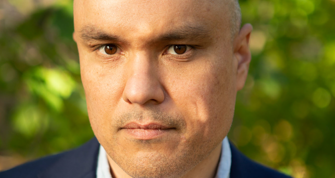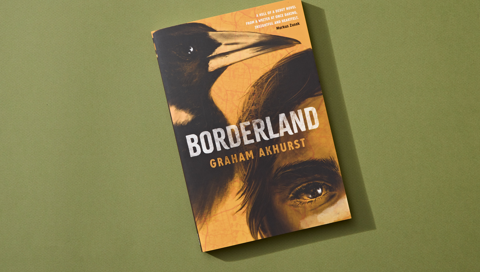Explore upcoming events

As May rapidly approaches, we are so excited to welcome you to the Festival and to introduce you to the writers who make it all worthwhile. To awaken your Festival spirit, we're got a series of Q&As to introduce some of the 2024 participants. Get to know them as we discuss their reading, their writing practice and the Festival theme, Take Me Away.
Today, we speak with Graham Akhurst, a Kokomini writer and the author of Borderland. A Fulbright Scholar, Lecturer in Indigenous Studies and Creative Writing at the University of Technology Sydney and board member for the FNAWN and Varuna, the National Writers' House, Graham brings a rich background to his turn into young adult fiction.
What books or writers inspire you?
So many, but here is a few that have been recent inspirations: Peter Carey, Markus Zusak, Alexis Wright, Richard Flanagan, Kim Scott, Tony Birch, Tara June Winch, Cherie Dimaline's The Marrow Thieves, Robert Louis Stevenson, Jorge Luis Borges, Susanna Clarke, J.G. Farrell and Hernan Diaz.
Borderland is your first novel, but you’ve been writing for many years as a Fulbright Scholar at Hunter College in New York and teaching creative writing at UTS. Does this novel feel like a culmination or a beginning?
I think a bit of both. Borderland, in the form it was published, was ready some years ago, so it feels like looking back to the person I was with the ideas and skillset I had at that time. It also feels like a beginning. To be now part of a tradition and conversation in and around Indigenous literature is truly wonderful.
How do you balance writing between forms of prose, poetry and non-fiction? Are the forms cleanly separated for you or do they blur together?
There is definitely a blurring together for me. Particularly in the themes or motivations that lay in and behind the texts. I’m intrigued by how exploring differing modes of writing and the role of a certain truth can be conveyed in nuanced ways via language.
What do you love about writing for young people?
It was my intention to write for young Indigenous men with Borderland. It’s a book I wish that I had access to when I was growing up. I love that when writing for young people you are connecting with readers at a formative part of their lives. To be able to express multiple contemporary Indigenous identities to them through my work was important as the readers are forming their identities and images around Indigenous Australia.
What do you hope readers take away from your work?
I hope that people see us and understand that Indigenous identities in this country are complex, multifaceted and highly politicised. We cross many borders in our day to day lives. Borders can be viewed as both points of connection and marginalisation and it’s my hope that my work in some small way articulates this for readers.
What events are looking forward to attending at the Festival?
I’d love to go to everything! However, my baby boy is about to be born any day now, so I don’t think I will be able to make too many other sessions!
